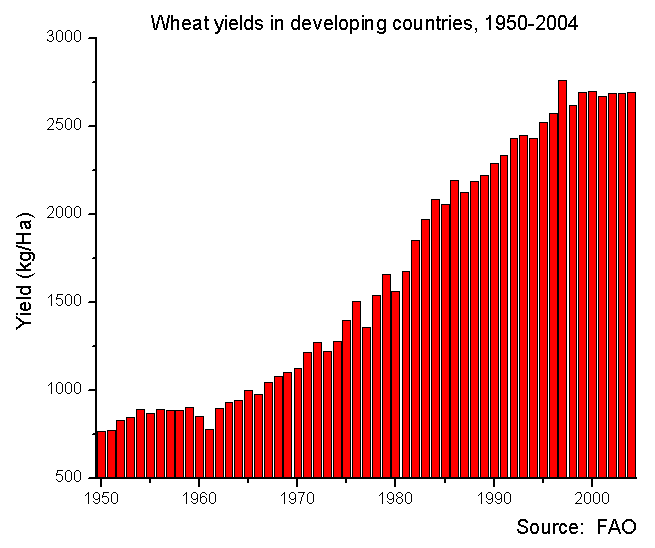Just like I wouldn't much care what happens to them. The industrialized nations are facing a more severe collapse than rural Africans. Why are we talking about this?
Because you were talking about humanity. If you mean "the end of affluent Western societies" then that's a different discussion. Yes, many societies will likely be poorer in the future.
I never said we were more "important", whatever that means. Flatscreen TV's and SUV's are not the issue. We are facing a complete collapse of all of the systems that currently make it possible for us to be alive.
Really? Farmers won't have dirt or sun any more?
We get our food from grocery stores and grocery stores get food delivered by trucks.
We get most of our produce from a local farm that is well within the range of my electric vehicle, and is (with some effort) within the range of my bicycle. If oil became very expensive many people would do something similar - find more local sources of food.
When the trucks stop running, the store shelves will soon be empty. That means a lot of us are going to die. That is just common sense.
Really? So until we had gas-powered delivery trucks, most people died?
All have been wrong only so far. Your line of reasoning here is just invalid. Past performance is no guarantee of future performance (see gambler's fallacy). Civilization must eventually collapse unless you are proposing perpetual motion (see the second law of thermodynamics, net energy, and EROEI).
Nope, no perpetual motion required.
As an exercise, calculate how much solar energy reaches the Earth every day. Now calculate how much energy the entire planet uses every day. See if you can see a way we can survive without oil.
Eventual collapse is inevitable. Please tell me why that essay is wrong.
Sure. Some points:
"But the exhaustion of fossil fuels, which supply three quarters of this energy, is not far off, and no other energy source is abundant and cheap enough to take their place. A collapse of the earth's human population cannot be more than a few years away."
This assumes that 1) there will be no alternatives and 2) the end of fossil fuels will happen instantaneously. Neither is true. We survived the loss of whale oil as a means of lighting by finding a new source of oil. We survived the end of acetylene as a method of lighting by finding an alternative. We survived the loss of horses as transportation by finding alternatives. Etc etc.
"Ever since Malthus, at least, it has been clear that means of subsistence do not grow as fast as population. "
Not any more. Population is slowing down, and if current trends continue, will peak near the end of the 21st century and begin declining. The US's birthrate is already below the point at which our population will increase on its own, despite being one of the most prosperous nations on Earth. Malthus hypothesized that population growth is limited only by famine, disease etc; this has been shown to be false.
"The environment, moreover, is under no obligation to carry a constant population of any species for an indefinite period of time."
Definitely true! Our population will wax and wane as most populations do. Indeed, I would be worried if that did NOT happen.
"According to the Second Law of Thermodynamics, energy flows from areas of greater concentration to areas of lesser concentration"
True!
"and local processes run down."
Not true at all. Thermodynamics clearly states that steady-state operation is no problem at all with an external source of energy (which we have) and a place to dump the resulting waste heat (which we also have.)
So that's three false assumptions in the essay. Let me know if you would like to continue.






